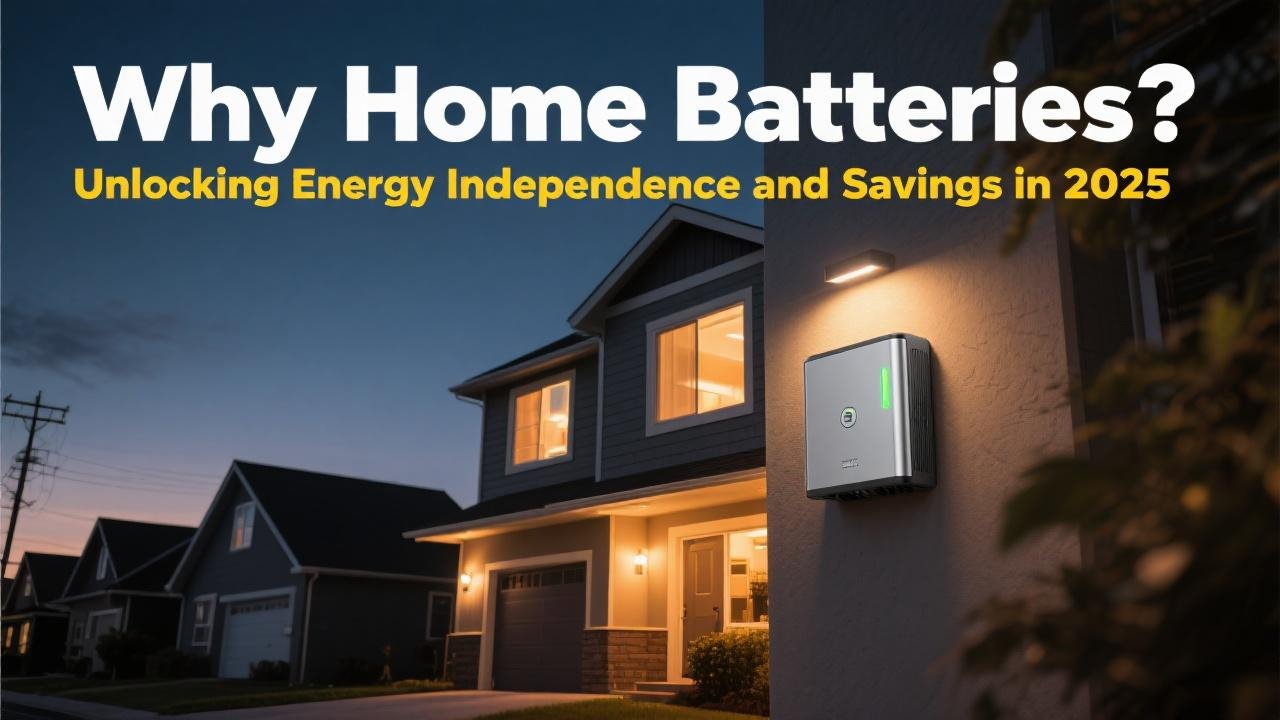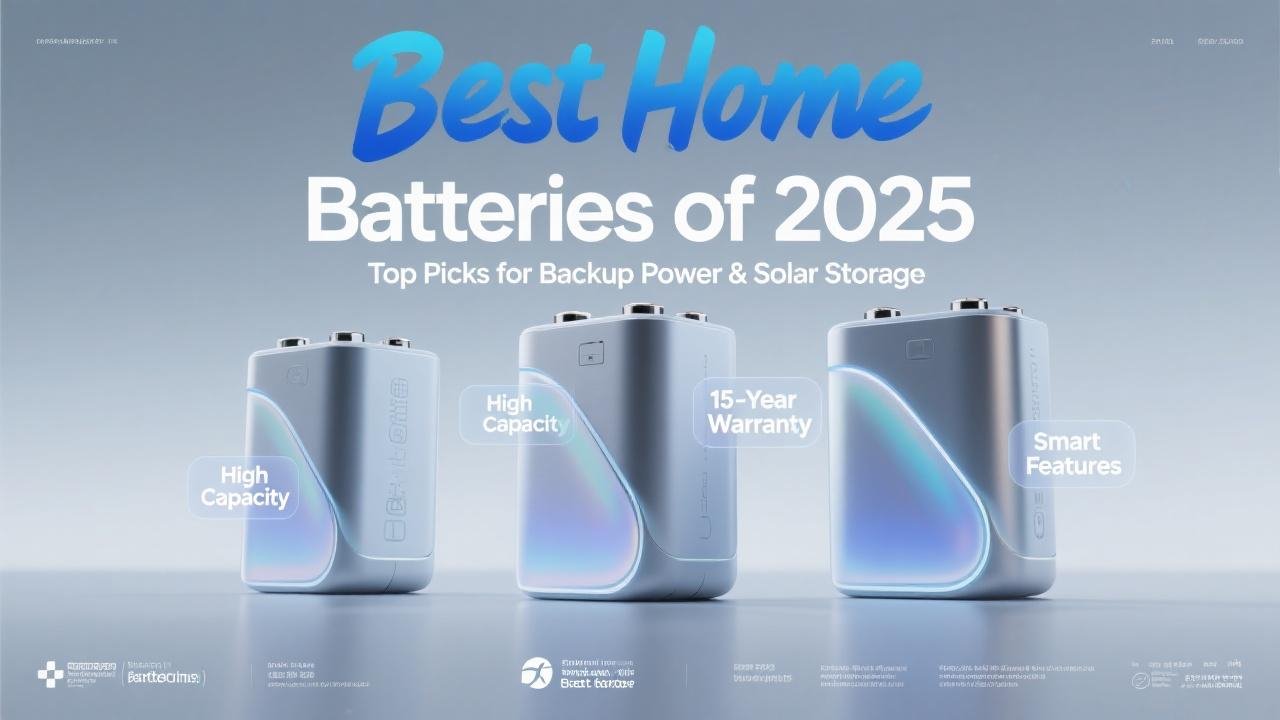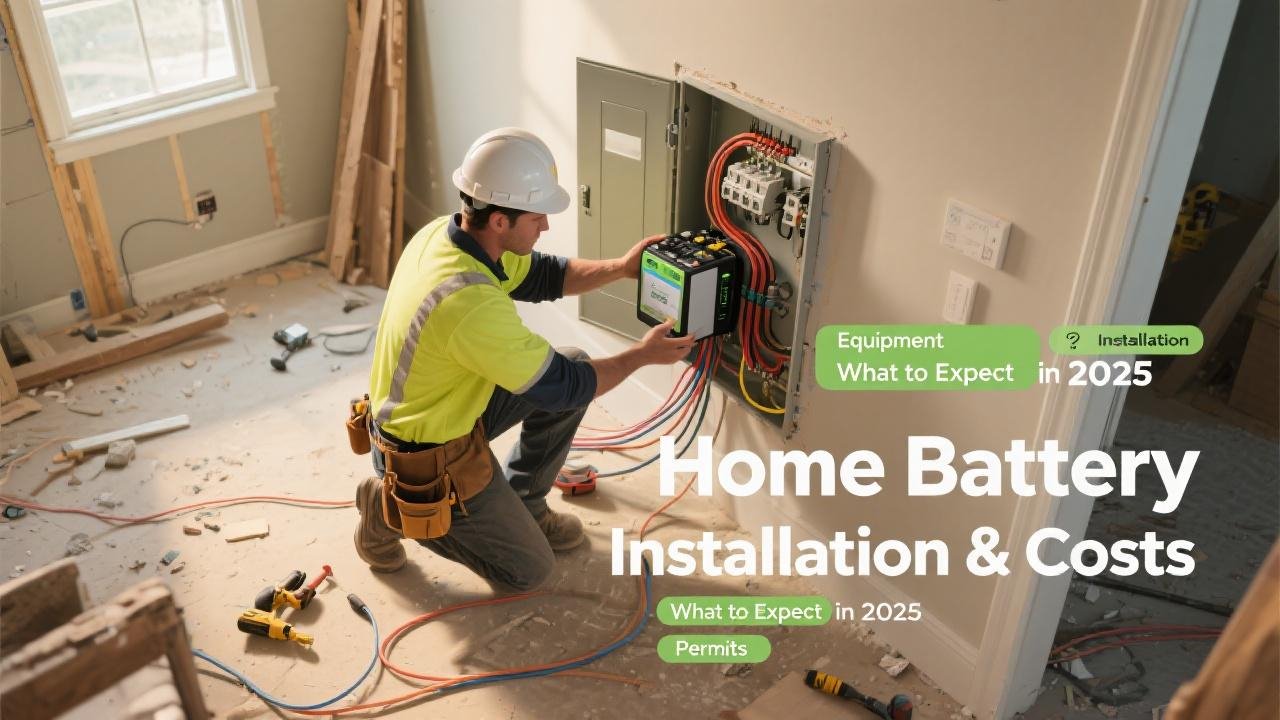Introduction: Beyond Solar Panels – The Rise of Home Energy Storage
Solar panels have revolutionized how homeowners generate electricity, offering a path to lower bills and a smaller carbon footprint. But what happens when the sun goes down, or when the grid experiences an outage? This is where home battery storage steps in, transforming a simple solar installation into a comprehensive energy solution. In 2025, with advancing technology and evolving utility policies, home batteries are no longer a niche add-on but an increasingly vital component for savvy homeowners seeking energy independence, resilience, and maximized savings.
This guide explores the compelling reasons why investing in a home battery storage system, such as a Bluetti EP900, Tesla Powerwall 3, or Enphase IQ Battery 5P, is a smart move in 2025. Platforms like EnergySage can help you explore these options and connect with qualified installers.
1. Energy Independence: Your Power, On Your Terms
One of the most significant advantages of home battery storage is the increased energy independence it provides.
- Storing Your Own Solar Energy: Instead of sending all your excess solar power back to the grid (especially if net metering compensation is low), a battery allows you to store that clean energy for later use. You become less reliant on your utility company.
- Using Solar Power Day and Night: With a battery, the solar energy you generate during the day can power your home in the evening and overnight, effectively extending the benefits of your solar panels around the clock.
2. Uninterrupted Power: Resilience Against Outages
Power outages can be disruptive and, in some cases, costly. Home batteries offer a reliable backup power solution.
- Automatic Backup: When the grid goes down, a home battery system can automatically switch over to provide power to your essential appliances and circuits, often seamlessly. This means your lights stay on, your refrigerator keeps running, and critical medical devices remain operational.
- Peace of Mind: Knowing you have a backup power source provides invaluable peace of mind, especially in areas prone to storms, grid instability, or planned public safety power shutoffs.
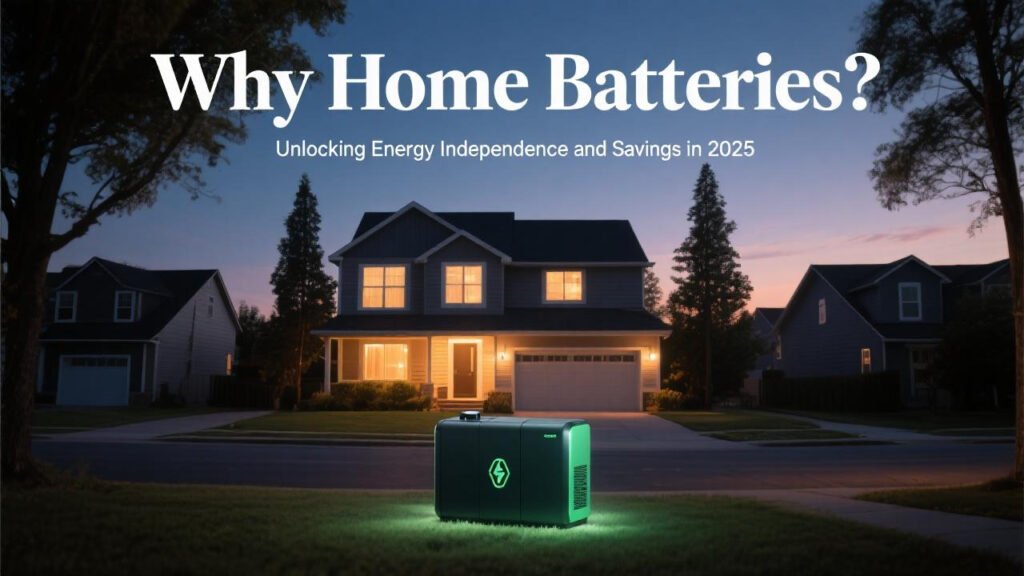
3. Maximizing Solar Self-Consumption: Get the Most from Your Panels
As utility net metering policies change, simply sending excess solar to the grid might not be as financially rewarding as it once was.
- Combatting Low Export Rates: In regions with low compensation rates for exported solar energy (like under California’s NEM 3.0, where export values dropped significantly ), storing your excess solar energy for your own use is far more economical than selling it back to the utility for pennies on the dollar.
- Avoiding Peak Utility Rates: Many utilities have Time-of-Use (TOU) rate plans, where electricity costs more during peak demand hours (usually late afternoon and early evening). A home battery allows you to store cheaper solar energy (or even cheaper off-peak grid energy) and use it during these expensive peak periods, directly reducing your electricity bill.
4. Financial Savings and Incentives
While there’s an upfront investment, home batteries can lead to significant long-term savings and may qualify for incentives.
- Reduced Electricity Bills: By maximizing self-consumption of your solar energy and avoiding peak utility rates, batteries directly lower your monthly electricity expenses.
- Federal Solar Tax Credit: When a battery is charged by solar panels, it generally qualifies for the 30% Residential Clean Energy Credit, just like the solar panels themselves. This applies to batteries with a capacity of 3 kWh or more. This can substantially reduce the net cost of the battery system.
- State and Local Rebates: Some states and utilities offer additional rebates or incentives for installing home energy storage. For example, California’s Self-Generation Incentive Program (SGIP) offers rebates for battery storage, which can range from $150 to $1000 per kWh depending on eligibility. Checking resources like DSIRE or the EnergySage platform can help identify these.
5. Supporting a Cleaner, More Stable Grid
Individual home batteries, when aggregated, can also contribute to a more resilient and efficient electricity grid.
- Reducing Peak Demand: By using stored energy during peak hours, homeowners reduce the overall demand on the grid, which can help utilities avoid firing up expensive and often more polluting “peaker” power plants.
- Grid Services (Future Potential): In some areas, utilities are exploring programs where homeowners can allow their batteries to be used for grid stabilization services, potentially earning additional revenue or bill credits.
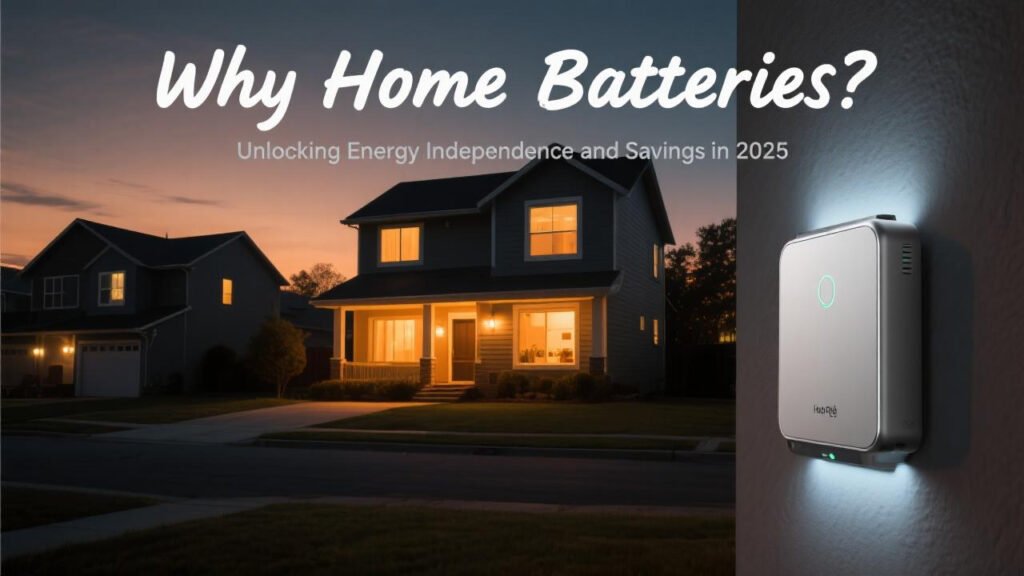
Key Considerations for Home Batteries in 2025:
- Technological Advancements: Battery technology continues to improve, with newer models offering higher efficiency, greater power output, and longer lifespans. Brands like Bluetti, Tesla, Enphase, Generac, and SolarEdge are at the forefront of these innovations.
- Evolving Utility Policies: Changes in net metering and the introduction of demand charges or dynamic pricing by utilities are making batteries an increasingly logical financial choice for solar owners.
- Integration with Solar: Batteries are most effective when paired with a solar PV system, allowing you to charge them with your own clean energy.
The Smart Evolution of Home Energy
Home battery storage is rapidly transitioning from a luxury add-on to a smart, practical investment for homeowners in 2025. The ability to store your own solar energy, ensure power during outages, maximize self-consumption in the face of changing utility rates, and achieve greater energy independence makes a compelling case. Coupled with financial incentives like the federal tax credit, the economics of home batteries are increasingly favorable.
If you’re considering adding energy storage to your home, platforms like EnergySage offer a wealth of information and tools to compare different battery options, understand their benefits, and connect with qualified local installers who can design a system tailored to your needs. Take control of your energy future and unlock the full potential of your home energy system with battery storage.

